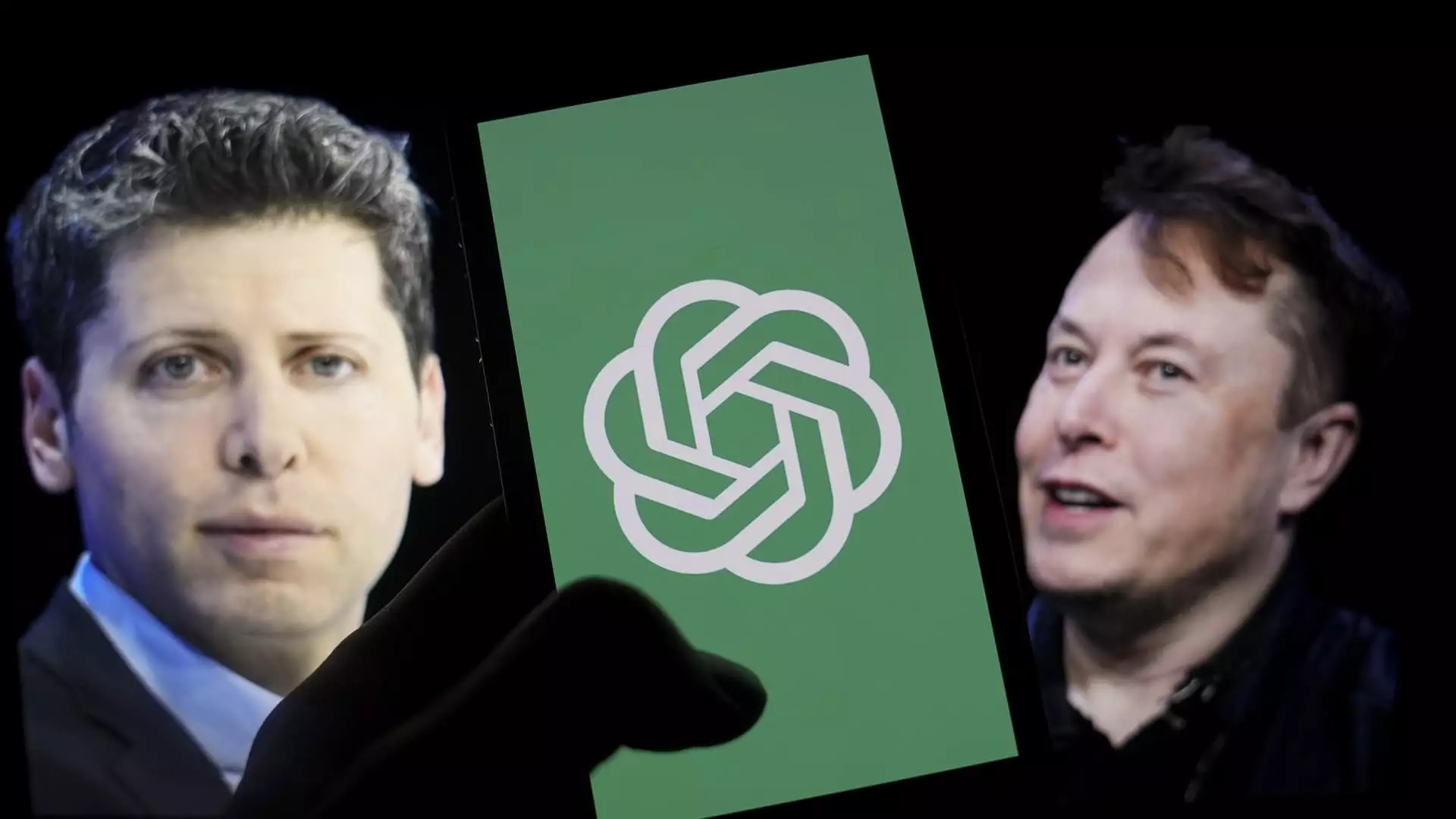The ongoing legal struggle between Elon Musk and OpenAI highlights a significant conflict in the rapidly evolving artificial intelligence sector. With Musk’s recent petition to the court seeking to prevent OpenAI from fully transitioning into a profit-driven entity, the implications of this legal battle extend beyond the courtroom. The stakes are high for all involved, as Musk’s new AI venture, xAI, seeks to establish itself amid a market dominated by heavyweights like OpenAI and Microsoft.
Musk’s motion for a preliminary injunction against OpenAI was filed by his legal team, comprising his AI startup xAI and former OpenAI board member Shivon Zilis. The injunction’s purpose is twofold: to halt OpenAI’s transformation into a fully for-profit organization and to stop the company from allegedly coercing its investors into avoiding funding competitors—namely, Musk’s xAI. This escalating legal feud raises questions about competition, corporate ethics, and the foundational goals of AI research.
Initially, Musk’s legal battle began in March 2024, when he lodged a lawsuit in a San Francisco state court. However, that case was withdrawn, and Musk subsequently opted for a federal court, highlighting the increasing gravity of his claims against OpenAI. Musk’s legal filings evoke federal racketeering laws, suggesting that OpenAI’s business practices infringe upon anti-competitive regulations. This reflects a serious charge that, if substantiated, could reverberate through the AI industry.
As Musk’s xAI emerges, it is critical to understand the fiercely competitive landscape of the AI sector. OpenAI has established itself as a frontrunner with its breakthrough chatbot technology, ChatGPT, which has generated substantial interest and investment in AI development. Musk’s entry with xAI, however, underscores the emerging rivalry among AI firms. His company, launched in July 2023, has already made headlines with its Grok chatbot and plans for significant investment, aiming for a valuation of $50 billion.
The crux of Musk’s argument centers around allegations that OpenAI and Microsoft are coordinating to restrict other companies’ access to investment. This “group boycott,” as Musk’s legal team describes it, raises concerns about monopolistic behavior that could stifle innovation and limit consumer choice. The AI industry’s rapid expansion, projected to surpass $1 trillion in revenue within ten years, only intensifies the pressure on firms and their access to investment capital.
OpenAI’s evolution from a non-profit organization to its current hybrid model, eventually aiming for a fully for-profit construct, reflects broader trends in the tech industry towards profit maximization. OpenAI began as a non-profit in 2015 but shifted to a capped-profit model in 2019. This transition has allowed it greater funding flexibility, including substantial investments from tech titan Microsoft, which has contributed nearly $14 billion to the endeavor. However, the ambition to become a public benefit corporation raises critical questions about the balance between profit motives and ethical AI development.
The restructuring under scrutiny could potentially afford OpenAI greater attractiveness to investors while maintaining a facade of non-profit integrity. Nevertheless, such moves could also paint the organization as a corporate juggernaut more concerned with financial returns than its foundational mission of safe and ethical AI development.
The current legal entanglement comes amid heightened regulatory scrutiny in the tech sector. The Federal Trade Commission (FTC) has announced an initiative to investigate partnerships within the AI landscape, which includes examining the lucrative ties between AI developers and major cloud providers like Microsoft and Google. This scrutiny suggests a wider concern regarding potential monopolistic behaviors within the tech landscape, and Musk’s allegations may just be a precursor to deeper investigations.
As the lawsuit progresses, it will serve as a critical litmus test for how competitive practices and regulatory frameworks adapt to the emergent realities of the AI sector. The outcome of Musk’s legal efforts could shape the future of AI development, investor relations, and market competition, especially as startups like xAI attempt to carve a niche in a market increasingly dominated by established players.
The intersection of innovation, competitive strategy, and legal boundaries in the AI sector creates a complex and evolving narrative. As Musk and OpenAI continue their legal battle, the implications extend far beyond their individual companies, hinting at the potential for shifts in the landscape of artificial intelligence development and its regulatory environment.

